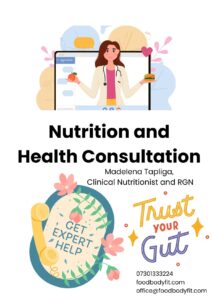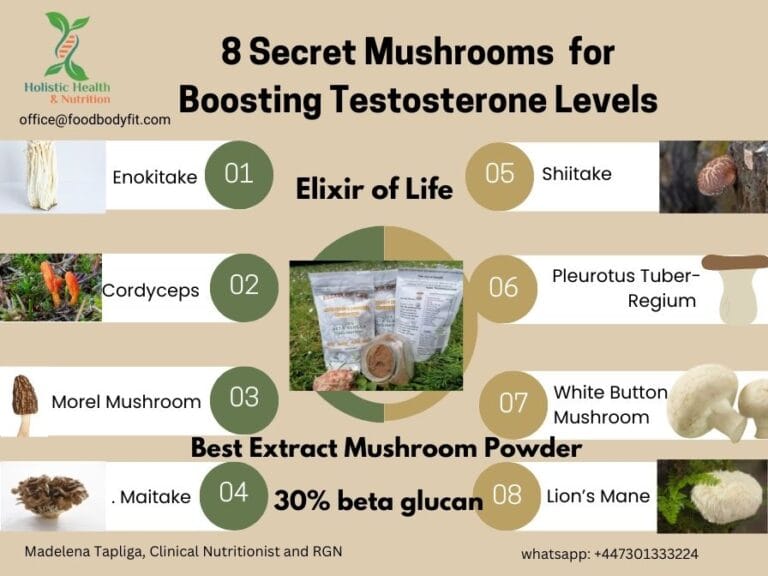Table of Contents
Good nutritional therapy is the medicine of the present.
How Nutrition and Health Consultation can change your life in a good way.

The doctor of the future will give no medication but will interest his patients in the care of the human frame, diet and in the cause and prevention of disease”—
Thomas A. Edison (1847-1931)
Recently I talked about nutrition, optimum nutrition, and how nutrition can protect our mental and physical health.
Is obesity a nutritional disease?
Yes, Obesity is a nutritional disease.
Healthy gut microbiota plays a crucial role in digestion by metabolizing indigestible macronutrients and producing short-chain fatty acids and other bioactive compounds. Research has demonstrated that diet significantly influences the composition of the gut microbiota, with specific alterations corresponding to the major macronutrients contained in the diet.
Given the impact of diet on the composition of gut microbiota, nutritional disorders such as obesity, severe acute malnutrition, and anorexia nervosa are associated with modifications in the gut microbiota that reflect the pathophysiology of the nutritional disorder.
Dysbiosis and GI-tract-related disorders
The gut microbiota is crucial for health, playing an important role in maintaining the human body’s homeostasis.
Alterations in the microbiota may occur due to exposure to various environmental factors, such as dietary habits, toxins, pharmaceuticals, and pathogens.
Inflammatory bowel disease (IBD)
Crohn’s disease (CD) and ulcerative colitis (UC) represent the most common manifestations of inflammatory bowel disease (IBD), characterized by chronic, relapsing inflammation of the intestinal mucosa.
Emerging research suggests that an imbalance in the gut microbiota is linked to the pathogenesis of both intestinal and extra-intestinal disorders.
Intestinal disorders encompass conditions such as inflammatory bowel disease, irritable bowel syndrome (IBS), and coeliac disease.
Extra-intestinal disorders, on the other hand, include conditions like allergies, asthma, metabolic syndrome, cardiovascular disease, and obesity.
What are the 10 nutritional disorders?
Nutritional diseases involve deficiencies or excesses of specific nutrients, imbalances in macronutrient intake, poor dietary quality, disordered eating patterns, or inadequate access to nutritious foods. Addressing nutritional problems often requires comprehensive assessment, education, and intervention to promote optimal nutrition and prevent or manage associated health issues.

Disease resulting from dysbiosis.
Obesity, metabolic syndrome, and Type 2 Diabetes are associated with systemic low-grade inflammation.
Obesity: Obesity is associated with dysbiosis in the intestinal tract of both men and mice.
| Diseases | Microbiota involved |
| Obesity | Intestinal Tract |
| Rhinosinusitis | Nasal cavities |
| Chronic Obstructive Pulmonary Disorder (COPD) | Lungs |
| Asthma | Lungs |
| Autism | Intestinal Tract |
| IBD | Intestinal Tract |
| Multiple Sclerosis (MS) | Intestinal Tract |
| Arthritis | Intestinal Tract |
| Periodontitis | Oral Cavity |
| Colorectal Cancer | Intestinal Tract |
| Diabetes Type 2 | Intestinal Tract |
Iron Deficiency Anemia: Iron deficiency anemia (IDA) represents the most prevalent nutritional deficiency globally. It is known to impair work capacity in adults and hinder motor and cognitive development in children and adolescents. Emerging evidence suggests that iron deficiency, even in the absence of anemia, may compromise cognitive abilities in adolescent girls and contribute to fatigue in adult women. Furthermore, IDA might impact visual and auditory functions and is modestly linked with suboptimal cognitive development in children.
Prioritizing gut health boosts energy, aids weight loss, improves glucose control, and enhances sleep quality. The right dietary choices can also promote liver regeneration, memory, and many more leading to better overall health.
Don’t hesitate to call for 15 min free Nutrition and Health Consultation today,
Optimum nutrition can support and improve:
- Disease and disorders linked to Food Allergies
- Examples of toxic reactions include nausea from bacterial food poisoning, heavy metal poisoning, and itching and flushing from histamine ingestion as seen in scombroid fish poisoning. The consumption of foods containing caffeine, such as coffee or tea, can cause jitteriness. Tyramine in aged cheeses can cause migraine headaches and alcohol ingestion is associated with a variety of well-known symptoms.
Atopic Dermatitis
About 35 percent of children with atopic dermatitis have a food allergy, based on double-blind, placebo-controlled food challenges.23 Skin conditions often improve when the suspected allergenic foods, such as eggs, milk, and peanuts, are eliminated from the diet. In the case of breast-fed infants, clinical improvement has been observed when these suspected foods are removed from the mother’s diet.
- Ear, nose, and throat infection
- Asthma
- Arthritis
- Autism
- Cardiovascular Health
- Chronic fatigue, Low energy
- Diabetes type 2
- Digestive Health (Bloating, Constipation, Diarrhoea, Hepatitis – Liver Support)
- Depression / Mood Swings
- Energy and Concentration Levels
- Frequent infections
- Inflammatory Conditions
- Hypertension
- High LDL cholesterol
- Migraines / Headaches
- Sleep Disorders
- Stress management
- Recovery from Surgery
- Skin Health (Eczema / Psoriasis or other skin problems)
- Healthy ageing
- General health & wellbeing
- Women’s Health ( Fertility and Pregnancy, Menopausal symptoms, prevention or management of gestational diabetes)
- Weight Management
What to expect from your Nutrition and Health Consultation
After booking your consultation you will be sent a questionnaire which will require you to complete your medical history and record a three-day food diary. The first consultation lasts for sixty minutes. We will discuss your goals, and health concerns, and agree on a personalised program that fits in with your lifestyle, budget and dietary preferences. Your full program will be emailed to you within three working days of our consultation.
I usually recommend you attend a follow-up consultation between four and six weeks after your first consultation. This consultation aims to review progress to date and to adapt the program as required. Follow-up consultations usually last between thirty and forty-five minutes.
Contact me
If you would like to find out more about Holistic Health and Nutrition services or would like to book a consultation, please get in touch using email: office@foodbodyfit.com. I will respond to you as soon as possible. Alternatively, feel free to call me using the telephone number: 07301333224



